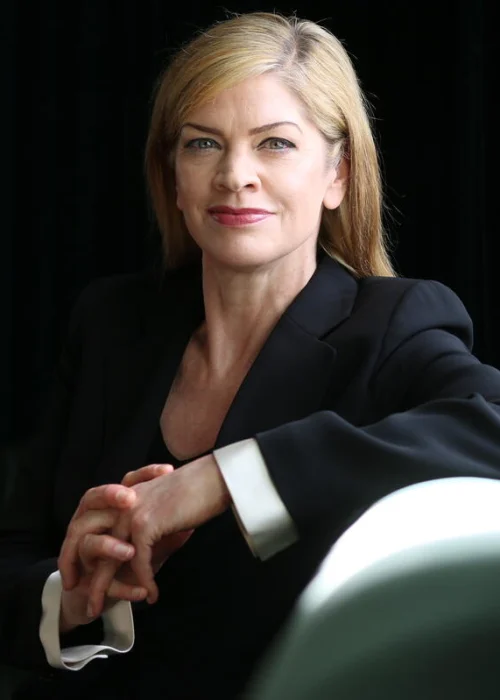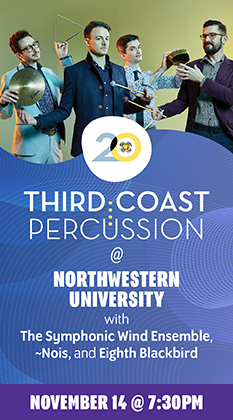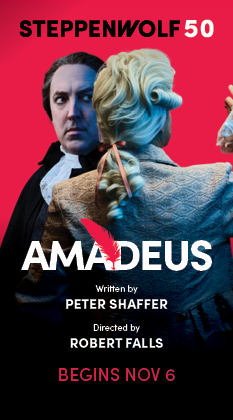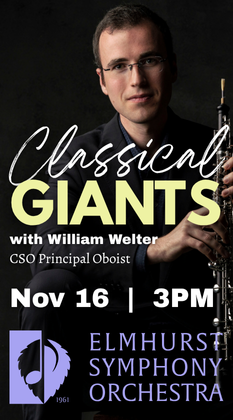Wilson, Hadelich strike sparks with GPO in Russian showpieces

After a stretch of heat, humidity and the occasional storm, Friday’s cool, clear weather proved ideal for an outdoor concert. The Grant Park Orchestra obliged with a program of Russian and Ukrainian music that filled the night with color and fire.
The evening at Millennium Park’s Pritzker Pavilion got off to an explosive start with the Overture to Taras Bulba, an 1880 opera by Ukrainian composer Mykola Lysenko. Guest conductor Keri-Lynn Wilson is a Canadian of Ukrainian descent and founded the Ukrainian Freedom Orchestra, a summer touring ensemble, after Russia’s invasion three years ago. A rising talent whose credits include the world’s major opera companies and orchestras, she was clearly on a mission to showcase Ukraine’s fighting spirit in the five-minute overture.
There is nothing subtle about Lysenko’s romantic, song-like melodies that evoked the country’s vast steppes or the insistent brass calling patriots to arms. But under Wilson’s attentive baton, the music never sank into film score bombast.
The evening’s highlight was provided by Augustin Hadelich, who was soloist in the Tchaikovsky Violin Concerto. His virtuosity is stunning, and he blazed through the first movement’s fiendishly fast, intricately showy passages with effortless aplomb. But the thoughtful passion he brought to the concerto’s more introspective moments was equally impressive. His tone was silky and rounded, even in the slashing strokes that give the concerto its fiery edge.

In the opening movement, soloist and orchestra seemed to operate like separate entities, the orchestra providing a somewhat perfunctory backdrop. But from the second movement on, the solo violin became a bright thread in a richly textured musical tapestry, The interplay between Hadelich and the orchestra was deeply sensitive as soloist and musicians deftly exchanged Tchaikovsky’s singing musical motives. Often his solos seemed to blossom seamlessly from an idea set out by Grant Park’s lyrical winds and glowing brass.
Hadelich’s encore was his own arrangement of Wild Fiddler’s Rag by Howdy Forrester, an acclaimed bluegrass fiddler. Cheerfully up-tempo, it surged with swooning dips and climbs and toe-tapping melodies. This was high-spirited hoedown music suitable for dancing in the aisles.
Wilson has won praise for her way with Russian composers, and coming after intermission, Prokofiev’s Fifth Symphony told us why. Having its premiere a few months before World War II ended in Spring 1945, the four-movement symphony has a conflicted edge. We imagine a battered war survivor, anxious and wary but nonetheless seeing unmistakable signs of hope.
From the symphony’s first moments to the finale, Wilson allowed Prokofiev’s gloriously lyrical, sweeping melodies to unfold with full-throated, unhurried serenity. But the minor harmonies and rich colors hinted at something darker. Short, jarringly dissonant outbursts from a solo brass or wind instrument here and there cast a sinister shadow on even the most heartfelt song.
Like Shostakovich, Prokofiev is a masterful conjurer of joy tinged with menace. Grant Park’s brass section was in top form, whether adding their clanging voices to the symphony’s moments of frenzied cacophony or setting out the disciplined beat of massive armies on the march.
Prokofiev may have called his symphony “a hymn to free and happy man,” but Wilson emphasized something less optimistic. The finale’s relentless tick-tock undercurrent, off-kilter dance rhythms and often blaring dissonance added a note of hysteria to its alleged joy. Perhaps, as Prokofiev promised, the clock was ticking down to a final victory. But perhaps it foretold something worse, as was made manifest in the interpretation by Wilson and the GPO.
On another note, the Grant Park Music Festival’s lack of printed programs is a major annoyance. No doubt printing those programs is expensive. But it is arrogant to expect audiences to spend time consulting a program online, and perhaps printing it out, beforehand. Having to fire up a phone to identify principal players is seriously distracting. Not listing the musicians’ names in the printed brochure that passes for a program is an insult to the players. The most important element at Grant Park concerts is the orchestra itself. They—and we—deserve to see their names in print.
The program will be repeated 7:30 Saturday. gpmf.org
Posted in Uncategorized



Posted Jul 20, 2025 at 8:09 am by Susan Frazier
I attended the Saturday, July 19, 2025 concert in 90 degree steamy heat to hear Augustin Hadelich play the Tchaikovsky violin concerto. I believe he is the finest violinist in the world and try to see him whenever possible. The conditions for the soloist were terrible but he managed to perform in his usual supreme manner.
Posted Jul 20, 2025 at 10:51 am by Eva
Agreed, a stunning concert! But throwing a negative paragraph onto the end of an otherwise rave review about a perfect concert is the real annoyance. Seems like this publication can’t go a single review without harping on the digital programs.
Your point about the cost of printed programs is well taken, particularly for a venue that can hold up to 12,000 visitors at a time. I’d add that for an outdoor venue, and one that shares a space with a public park and many other organizations, reducing litter must be a major focus.
Posted Jul 20, 2025 at 3:26 pm by Linda Piele
And aren’t we fortunate that Augustin will be back performing the Dvořák Violin Concerto with the CSO in October!
Posted Jul 21, 2025 at 11:06 pm by Jerry Meites
I strongly agree with you that the lack of programs is outrageous. To the best of my knowledge, no public explanation has ever been given for the abolition of programs.
But what is in many ways an even greater travesty is what Grant Park does with the limited space that they do have on their “mini-program.” Beside listing the pieces being performed, they devote the rest of the space to listing the major contributors and the board of directors.
They could certainly use that space to make some effort to describe the music being performed and use the QR Code to direct people to their website to read the names of the board and the major donors.
As I told and wrote to Grant Park staff several times last year, over a millennium ago, the great philosopher Moses Maimonides wrote that there were eight levels of charitable giving. The lowest form of giving was by someone who did so to get favorable publicity. The highest form of giving was by a donor who gave anonymously.